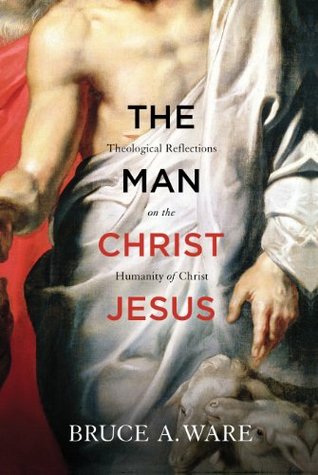Kindle Notes & Highlights
Read between
February 2 - March 1, 2020
Paul’s declaration that Christ possesses “equality with God” is stunning. It can mean only one thing: by virtue of the fact that no one can be equal to God but God himself, Christ, who possesses equality with God, must himself be fully God.
Christ being fully God, possessing the very nature of God and being fully equal to God in every respect, did not thereby insist on holding onto all the privileges and benefits of his position of equality with God (the Father) and thereby refuse to accept coming as a man.
But here it is crucial to see that Christ’s not “grasping” equality with God cannot rightly be taken to mean that Christ gave up being God or became in any way less than fully God when he took on also a fully human nature. No, rather, he did not grasp or clutch onto the privileged position, rights, and prerogatives that his full equality with God, his Father, afforded him, in order to fulfill his calling to become fully a man who would be, amazingly, servant of all.
Apart from the incarnation, there was nothing to “hide” or conceal his full deity, so it could show forth in full brilliance. But when he became also a man, he “covered” himself with a created, limited, and finite human nature. So, even though Christ is fully God in the incarnation, he cannot express the full range of his divine qualities or attributes owing to his having also taken on full human nature.
To obey to the point of death requires the ability to die, and for this, Jesus had to be human.
Without comprehending the profundity of the purpose of the incarnation, as Paul describes it here in Philippians 2:5–9, we will inevitably trivialize what it means to “do what Jesus would do” or to “live like Jesus.”
The instinct in much evangelical theology, both popular and scholarly, is to stress the deity of Christ, but when it comes to the day-to-day obedience and ministry of Jesus, the New Testament instead puts greater stress, I believe, on his humanity.
In other words, although he came as one who was both fully God and fully man, he also lived his life as one indwelt with and empowered by the Spirit of God.
So then we ask instead this question: what could the Spirit of God contribute to the humanity of Christ? The answer is: everything of supernatural power and enablement that he, in his human nature, would lack.
The only way to make sense, then, of the fact that Jesus came in the power of the Spirit is to understand that he lived his life fundamentally as a man, and as such, he relied on the Spirit to provide the power, grace, knowledge, wisdom, direction, and enablement he needed, moment by moment and day by day, to fulfill the mission the Father sent him to accomplish.
So when you put these two texts from Isaiah together, you realize that the role of the Spirit on the coming Messiah will be to empower his inner life and character and to fill his mind with knowledge and wisdom but also to empower the ministry he will conduct outwardly as he proclaims the message God has for him to give.
Both inward character and outward conduct, then, are tied to the empowering work that the Spirit will perform on this coming anointed one of God.
His first coming was for the salvation of the nations; his second coming will bring to those nations his fierce and relentless judgment.
Amazingly, what both of these verses indicate is that Jesus’s wisdom is not a function of his divine nature but is the expression of his growth as a human being.
Obedience per se was not new; rather, this kind of obedience was indeed new.2
Although Christ was fully God, and as fully God he could not sin, he deliberately did not appeal, as it were, to his divine nature in fighting the temptations that came to him. As a human, he not only could be tempted but was tempted in the greatest ways any human has been tempted in all of history. Yet for every temptation he faced, he fought and resisted fully and totally apart from any use of or appeal to his intrinsic divine nature.
The reason that hell is eternal is simply that justice demands a full payment for our sin, and a full payment is impossible for finite humans to render to an infinitely holy God.
the resurrection is the only way in which the efficacy of Christ’s atoning death for sin can be demonstrated. His death for sin worked, we might say, as his resurrection proves.


